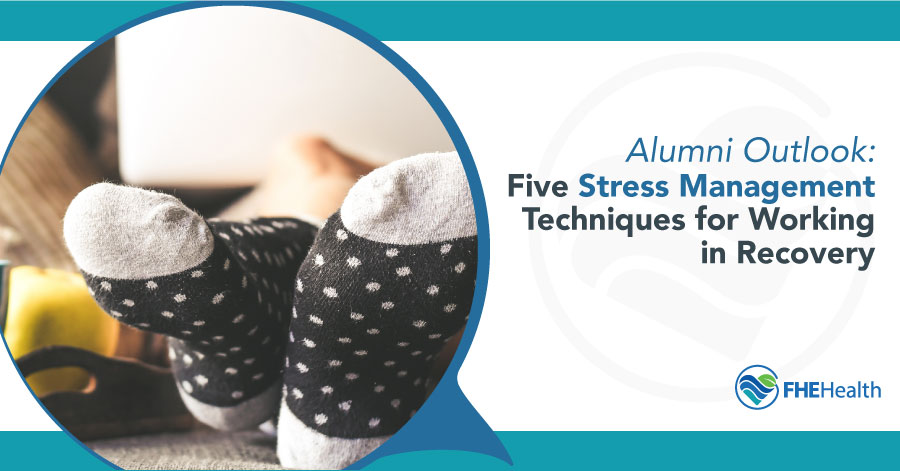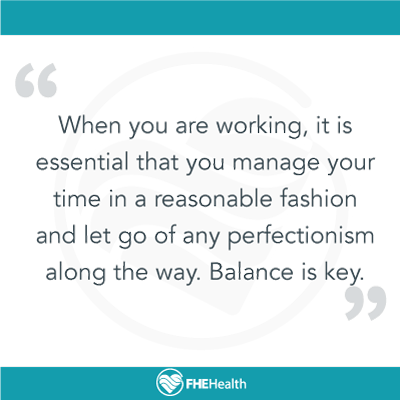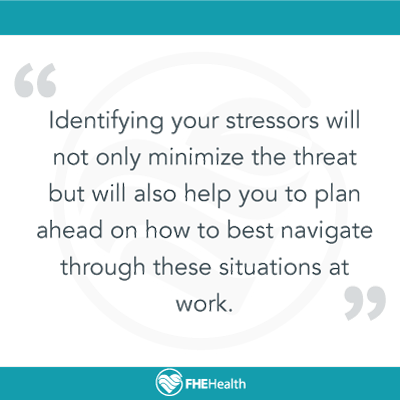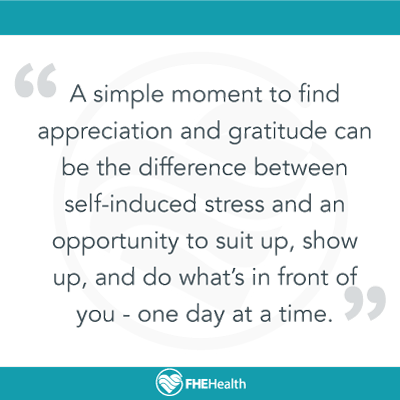
Using drugs and alcohol as a way to cope with the stressors of life — and especially work — was my go-to reprieve for as long as I can remember. Eventually, drugs and alcohol exacerbated my stress and once I got sober, I couldn’t return to my old foes for relief. It took me years to realize that not all stress should be categorized as bad stress. In fact, appropriate levels of stress can actually motivate recovering addicts, such as myself to perform well. Likewise, stress that occurs when we are in a potentially life-threatening or triggering situation warns our body to face a threat or flee.
However, long-term stress, especially consistently in an everyday environment such as at home or work, can suppress our immune systems, disrupt sleep, impair our judgments, and ultimately lead to relapse. I can remember never wanting to step one foot in the door of any employment establishment sober. In fact, I truly believed I performed much better at work when I was completely intoxicated. This insanity couldn’t be further from the truth. Fortunately, I now work in a field that I absolutely love, but that does not mean that my career path is void of any stress. However, I like to practice several stress management techniques when I find myself stressed out about anything work-related.
Manage your time
 I don’t know about you, but time management has never been my forte. In fact, I spent many years of my life only chasing after one thing – my next fix. In order to feel less stressed, especially at work, it is essential that you streamline your day and manage your time on the clock. Too many tedious duties, assignments, deadlines, projects, or to-do lists that you draw up and fail to complete will only serve as the root cause of your stress. Before I start my work week, I always take the time to physically write down all of my weekly tasks. Then, I consult with my team and prioritize each one and create attainable deadlines and days to complete them. When you are working, it is essential that you manage your time in a reasonable fashion and let go of any perfectionism along the way. Balance is key.
I don’t know about you, but time management has never been my forte. In fact, I spent many years of my life only chasing after one thing – my next fix. In order to feel less stressed, especially at work, it is essential that you streamline your day and manage your time on the clock. Too many tedious duties, assignments, deadlines, projects, or to-do lists that you draw up and fail to complete will only serve as the root cause of your stress. Before I start my work week, I always take the time to physically write down all of my weekly tasks. Then, I consult with my team and prioritize each one and create attainable deadlines and days to complete them. When you are working, it is essential that you manage your time in a reasonable fashion and let go of any perfectionism along the way. Balance is key.
Identify stressors
 When I’m writing down my to-do list for the week, I always like to note the most stressful tasks on my list. The best way to identify stressors at work is to ask yourself a few of these questions. What is a significant stressor for you? For example, is running late, unreasonable deadlines, a specific client, or coworker a source of your stress? How can you make plans, so you feel at ease about this looming threat to your serenity? Could you wake up a little earlier to squeeze in some extra meditation time? Is it possible to request a later deadline for some of your larger projects at work? (Remember, it never hurts to ask.) Should you be sure you aren’t overcommitting to a task you are not confident you can complete on time? Identifying your stressors will not only minimize the threat but will also help you to plan ahead on how to best navigate through these situations at work. It’s not uncommon for stress to crop up at work, but don’t panic and remember to breathe when it does.
When I’m writing down my to-do list for the week, I always like to note the most stressful tasks on my list. The best way to identify stressors at work is to ask yourself a few of these questions. What is a significant stressor for you? For example, is running late, unreasonable deadlines, a specific client, or coworker a source of your stress? How can you make plans, so you feel at ease about this looming threat to your serenity? Could you wake up a little earlier to squeeze in some extra meditation time? Is it possible to request a later deadline for some of your larger projects at work? (Remember, it never hurts to ask.) Should you be sure you aren’t overcommitting to a task you are not confident you can complete on time? Identifying your stressors will not only minimize the threat but will also help you to plan ahead on how to best navigate through these situations at work. It’s not uncommon for stress to crop up at work, but don’t panic and remember to breathe when it does.
Establish boundaries
This is a tough one for me. I am a woman with very few boundaries – however, I am getting better at it. In today’s isolated, quarantined, and digital world, it is easy to feel the pressure to be available 24/7. I am a perfectionist by nature, and I find myself working after hours to complete a task at work, long after I’ve clocked out. Working from home has really created heavy tension in this area. I’ve had to establish some work-life boundaries for myself. In other words, I have designated certain hours not to check emails or answer the phone once I am settled in with the kids. Establishing some of these boundaries has helped me to avoid blending work and home life. At first, I had a hard time not answering my phone when a client would call. That was until I realized I was allowing work to infiltrate into my personal time. These established realms have reduced the potential for work-life conflict and all of the stress associated with it.
Recharge with self-care
 In order for me to avoid chronic stress and burnout, I absolutely need time to replenish and practice basic self-care routines. This process has required me to “switch off” from work by designating periods of time when I am neither engaging in work-related activities nor thinking or talking about work. Again, this has been a tough one for me. Upon getting sober, I realized that I had wrapped most of my self-worth into my work ethic and accomplishments in the workplace. Recently, I found myself experiencing extreme stress and burnout. Here I was, working a job I absolutely love, but feeling unfulfilled. I recognized that I was no longer doing any of the personal writing that I am passionate about. I committed to starting my own personal blog, and I take 30 minutes every day to write for myself. Not only am I investing in myself, but this process has been extremely therapeutic for me. Go for a walk. Eat and sleep well. Don’t miss your lunch break. Laugh with your coworkers. Take time to be sure you are attending meetings, helping others, and filling your cup so that you can eliminate significant stress at work.
In order for me to avoid chronic stress and burnout, I absolutely need time to replenish and practice basic self-care routines. This process has required me to “switch off” from work by designating periods of time when I am neither engaging in work-related activities nor thinking or talking about work. Again, this has been a tough one for me. Upon getting sober, I realized that I had wrapped most of my self-worth into my work ethic and accomplishments in the workplace. Recently, I found myself experiencing extreme stress and burnout. Here I was, working a job I absolutely love, but feeling unfulfilled. I recognized that I was no longer doing any of the personal writing that I am passionate about. I committed to starting my own personal blog, and I take 30 minutes every day to write for myself. Not only am I investing in myself, but this process has been extremely therapeutic for me. Go for a walk. Eat and sleep well. Don’t miss your lunch break. Laugh with your coworkers. Take time to be sure you are attending meetings, helping others, and filling your cup so that you can eliminate significant stress at work.
Rewrite the narrative.
As addicts and alcoholics, we have the fatal flaw of maintaining ungrateful and overall negative perceptions of almost any task that does not produce instant gratification. Your perspective of stressful work events is typically a subjective interpretation of the facts. Try taking a step back and taking a more objective view of your stress at work. When I take the time to find gratitude in the tasks I get to do rather than do at work; I am less likely to take things personally. We are in the middle of a global pandemic, and millions of Americans have lost their jobs; how fortunate are we to still have our careers? A simple moment to find appreciation and gratitude can be the difference between self-induced stress and an opportunity to suit up, show up, and do what’s in front of you – one day at a time.






